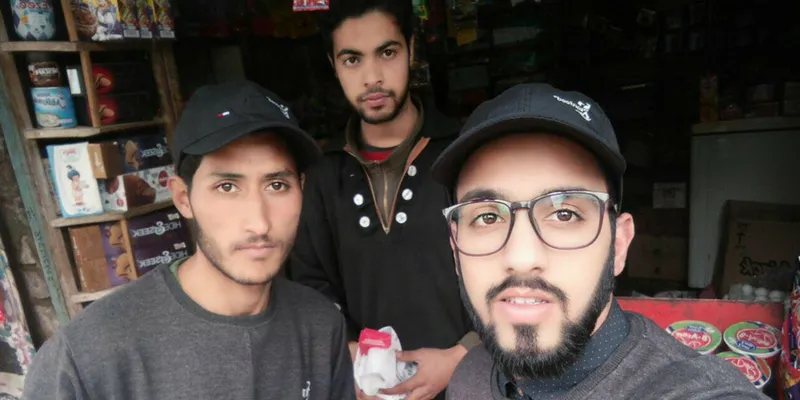College student launches KartFood, Kashmir’s first online food delivery service
KartFood has tied up with 15 restaurants in Srinagar, and is now planning to expand its services to other parts of the Valley and Jammu.

When the café culture started growing in the Valley, it gave Furqan Qureshi, 23, and Amir Bashir, 21 food for thought. The duo, friends and students at Islamia College, Srinagar and Jai Hind College, Mumbai, respectively, decided to start an online food delivery service. The services they had seen during a visit to Delhi strengthened their resolve as they started on their startup journey.
Today, KartFood prides itself as Kashmir’s “very own home delivery service company which deals with the carting of food” to hungry clients.
Furqan recalls that it all began with a conversation he had with his friend, Javed Parsa, who owns the Parsa’s restaurant in Srinagar. The duo discussed the scope of food delivery services in Kashmir.
“That’s when he proposed the idea of me embarking on the journey to introduce KartFood,” Furqan says.
Furqan and Amir initially operated through telephone calls. However, after receiving an overwhelming response and facing a continuously increasing workload, they decided to launch a website and an android app that would let customers could place orders that would be delivered within 45 minutes in the city.
Starting small
Based in Lal Chowk, the heart of Srinagar, the duo initially invested a sum of Rs 30,000, followed by a smaller instalment of Rs 15,000 after some time.
“We got all our investment back in the first month only,” Furqan says.
The duo launched the website in February 2017, the Android app in March, and iOS app in April.
“During the unrest, we designed the website and logo. Once everything was ready, we launched the website on February 20, 2017,” Furqan says.
However, Amir quit the company in July.

Furqan, who remained committed to the startup, has, since then, been managing the business on his own. He also manages time for his studies; he is currently perusing a bachelor’s degree in commerce from Islamia College, Srinagar.
Currently, KartFood has tie-ups with 15 restaurants across Srinagar and is planning to expand its services to Jammu division as well.
The challenges
Furqan says they did not have a predetermined objective at first as they did not know how to implement the idea in the beginning. This proved more challenging when turmoil hit Kashmir in 2016.
“Being an entrepreneur isn't the easy and carefree path that many believe it to be. It's actually quite opposite, especially when your base is in a place like Kashmir.”
However, when the effect of the turmoil subsided, they began their promotions with full effect. The response they are getting is better then what they had expected but the internet gag still remains the biggest challenge.
To tackle the internet ban, Furqan says the team plans to promote their mobile numbers to ensure communication between KartFood and its customers.
In the foodtech space
The Indian food market was pegged at $193 billion last year and is estimated to cross $540 billion in three years. No wonder that startups abound in the foodtech space.
But foodtech is known for the many startups that have shut down in recent times. Things went awry in the latter half of 2015 and in 2016; TinyOwl, Dazo, Spoonjoy, Eatlo, EatOnGo, and Zupermeal were among those who stumbled.
But the last couple of years have also seen umpteen consumers –across cities- make friends with and accept app-based food delivery services.
With companies investing in technology to make sure consumers are get the best in-app experience while placing/receiving an order, the industry will see increased adoption in 2018 from consumers and restaurant owners.
Furqan is banking on that, and knows that innovation and localisation will be vital if he wants to sustain and drive growth.
Hungry for more
With over 10,000 downloads in all, KartFood is planning to expand their business to Jammu and other districts of Kashmir soon. At the beginning, the startup was run by two people; today, they employ seven people and are looking to hire.
Furqan says that they get around 30-40 bookings per day and earn around Rs 50,000 per month.
“Our long-term plan targets the national capital; we are aiming to create services where we can deliver items other than food,” Furqan ends.







